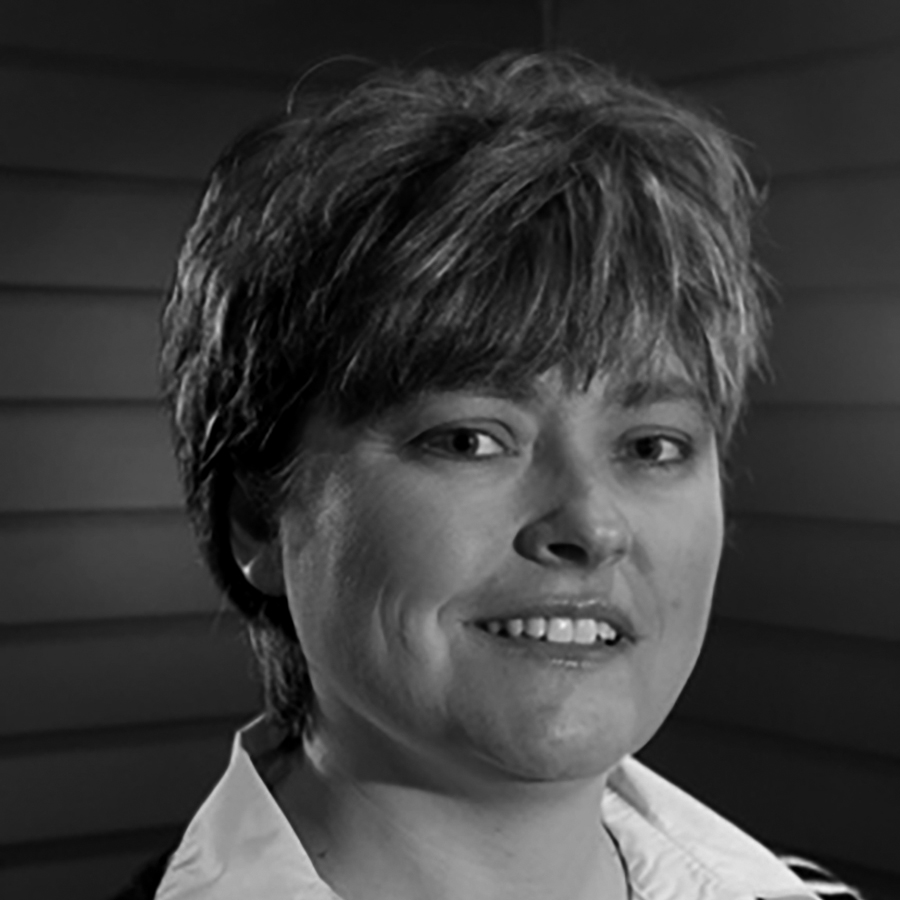Investing in real estate can change your life. Just ask Kathy Fettke, who started by renting out rooms in her own home when her husband, Rich Fettke, was diagnosed with cancer. She now has a diversified portfolio of single-family homes and commercial real estate throughout the country. Most people would have stopped there. Not Kathy.
As she studied the industry and researched specific markets, she realized just how much misinformation was out there and how many people who didn’t invest were nonetheless trying to sell how-to programs to others. Kathy decided to take action, and in 2003, she co-founded the Real Wealth Network with Rich. Today, the California-based investment group offers daily podcasts, educational events and investment opportunities to roughly 24,000 members.
An Unexpected Crisis
Kathy has always been passionate about researching and sharing information, skills that served her well in the newsrooms of CNN, FOX, CTV and ABC. They also came in handy when, as a young model, she noticed agencies charged extravagant fees for subpar modeling and acting classes. She reached out to casting directors to find out what skills models and actors needed to be successful, started her own agency and offered classes to her clients taught by those same casting directors at a reasonable price.
Although the agency was successful, the business was extremely demanding—try finding 100 people to audition for a casting director the next day—and she left when she had children, becoming a full-time, stay-at-home mom. Rich, a former ESPN X Games competitor, supported them with proceeds from the sales of his book, “Extreme Success,” which applies the principles of extreme sports to business, as well as from seminars and speaking engagements.
“Everything was going great,” Kathy says. Then the unexpected happened. Rich found out he had melanoma and was given six months to live. As the family quickly burned through their savings to pay medical bills, Kathy realized she was going to have to find a way to earn an income without spending too much time away from the family.
Turning to Real Estate
Her thoughts quickly turned to their 4,000-square-foot, six-bedroom home. It was more space than they needed and, with its private entrances, could easily be turned into a fourplex. After moving into one section of the house, they were able to rent the remaining space to tenants, including international students who were willing to pay for a shared room with bunk beds. The rental income was enough to pay their mortgage.
“I became a landlord without realizing it,” she says.
But she may not have become an investor if she hadn’t resurrected her “Oprah-style” radio show on pursuing dreams. (Kathy is also a certified personal coach.) While producing the show would allow her to spend more time with Rich than a full-time job, she needed a show sponsor to earn an income.
That sponsor turned out to be a mortgage broker who was willing to pay “a lot of money” in return for segments on her show. At first, Kathy wasn’t sure how to make the segments appeal to her audience, but eventually, she decided to interview his clients, many of whom were successful investors and, in the process, got a crash course in the real estate industry. The broker’s segments became her favorite part of the show.
She also noticed that a lack of money was one of the main reasons the people on her show, “Dream,” had difficulty actually achieving their dreams, and the more she learned about real estate, the more it looked like it might be the answer to their—and her—financial concerns.
Getting Started
The mortgage broker’s segments were so successful for him, Kathy says, that he soon had more work than he could handle, and he asked her if she would be interested in getting her mortgage broker’s license to help him out. Seeing an opportunity to earn a good income and learn more about an industry she found fascinating, she accepted the offer.
“It was the height of the real estate boom, and you could make $10,000 off one loan,” she says. “That solved our immediate financial problems.”
As Rich improved and outlived his six-month prognosis, the Fettkes began to accumulate enough money to start investing, but Kathy sensed something wasn’t right with the market when she saw mortgage companies change applicants’ salaries so they could qualify for loans. They decided to proceed with caution, especially when it came to investing in California real estate.
Everyone at the time was investing in California, Kathy says, but the investors and experts she interviewed for the mortgage broker’s segments all advised against it. In fact, they were actually selling their California properties and buying in Texas. Had the Fettkes followed common wisdom, they would have lost money. Instead, they listened to the experienced investors, bought properties in Dallas in 2004 and 2005, and made money. Kathy says it opened their eyes to the importance of market timing and cycles. It also taught them that where you get your information matters.
Gathering Information
From the beginning, Kathy recognized how important it was to educate herself on every aspect of real estate investing, including the markets and cycles, and how important it was to keep current on what’s happening in the industry on a daily basis.
“I was just fascinated by a whole world I didn’t understand,” she says. Today, Kathy is considered an expert in the field and is a frequent guest on CNN, CNBC, Fox News, NPR, CBS MarketWatch and The Wall Street Journal. She’s also the author of “Retire Rich with Rentals.” Rich immersed himself in real estate investing as well and is now a licensed real estate broker.
But not everyone has the time to sift through all the information out there or even has access to the successful investors the Fettkes did when they got started. As Kathy continued to educate herself, she noticed a lot of people were jumping into investments they didn’t understand or were relying on information peddled by people who were not actively investing themselves.
“There were a lot of gurus out there that had never done a deal,” she explains. “You would ask them what they owned, and they didn’t own anything.”
It reminded Kathy of the agencies she had encountered years earlier that sold those expensive but essentially worthless classes to aspiring models and actors. The real estate gurus and boot camp instructors were more concerned about making money than providing quality information, and Kathy saw an opportunity to create a place where people could learn how to invest in real estate and find reliable information on the industry. What’s more, Kathy decided to provide the information for free.
Creating Real Wealth
In 2003, she and Rich co-founded Real Wealth Network, an investment group based in California. Anyone can sign up to become a member—regardless of where you live—and gain free access to online educational materials, 500-plus informational podcasts and a daily news podcast. Members can also attend monthly events held in northern and southern California or sign up for a market tour to see what’s available in an area where the investment group has inventory available.
Again, this is all free, Kathy emphasizes. Real Wealth Network makes money by referring members to local resources, such as real estate agents, brokers and property management companies when they make a purchase through the investment group. If you use one of these local resources’ services, that company will pay a small referral fee to Real Wealth Network. Kathy believes their business model probably has put a few gurus out of business.
“A lot of the boot camp guys couldn’t compete with free,” she says.
In addition to their online academy, podcasts and single-family inventory, Real Wealth Network started offering other investment opportunities about six years ago. A developer approached them with a deal for 27 waterfront townhomes in Portland, Kathy says, and asked if they could raise $2 million. She was able to raise the entire amount after sending out one email to members, who made 20 percent on their investment.
Based on the enthusiastic response to the email and the strong return on investment, Real Wealth Network began looking for additional opportunities to work with developers. It’s all about the market, according to Kathy, who points out that for a long time there was a glut of property on the market and building stopped. Now, there’s very little inventory, and developers are scrambling.
At some point, though, the market will shift again, and when it does, Real Wealth Network will shift its focus, too. That’s one of the advantages of working with an investment group like Real Wealth Network, which studies the market so closely—you don’t have to try to figure out the timing and cycles on your own.
Changing Lives
Kathy has seen, time and time again, just how difficult it can be to try to invest in real estate on your own. One of her favorite examples is that of a woman who owned three properties in Stockton, California, each worth about $400,000 in 2005. She wanted to retire but wasn’t sure how she could on the $1,200 per month each of the properties generated and asked Kathy for advice. Kathy told her to sell because there was a bubble in California real estate.
On her advice, the woman sold all three properties in California and purchased nine in Texas. These nine properties now generate three times as much profit as what the three properties in California generated, making it possible for her to quit. If the woman had held the California properties, they would have dropped in value to $100,000 each, and she’d still be working, according to Kathy.
Another example is a man who inherited a dilapidated home in San Francisco with a tenant who didn’t consistently pay his rent. Kathy pointed out to the new owner that he had all of his “eggs in one basket,” so to speak, and it wasn’t even a really good basket since San Francisco has earthquakes, rent control and tenant-friendly laws.
She advised him to sell the property and buy elsewhere. Despite its rundown condition, the house sold for $1.5 million, and the investor was able to use that money to purchase 20 properties in Houston, Cincinnati, Indianapolis and Jacksonville. Now, instead of getting the meager amount he would have if the tenant decided to pay, the investor earns $20,000 per month.
Essentially, that’s what Real Wealth Network is really all about—generating enough income to live life on your own terms, she says.
Living Life on Your Own Terms
Investing in real estate is one of the best ways to generate passive income, and Kathy believes Real Wealth Network can give you the information and tools you need to invest successfully, even if you’ve tried before and lost money.
“Our meetings are full of people who lost money in real estate, but I think they understand that they lost money because of what they didn’t know,” Kathy says. “I think they understand that they didn’t understand.”
But, by taking advantage of the resources available through Real Wealth Network and educating yourself, you can invest in successfully and have enough money to live your dreams, whether that means staying at home with your kids or retiring and traveling around the world. If you want to get to that point, though, Kathy says, education is key.
“Educate yourself thoroughly,” she advises. “Don’t jump into anything you don’t understand.”
She adds that once you have a good understanding of real estate and the market, you need to continue to educate yourself because the markets are cycling faster than ever before. What worked this year might not work next year.
That’s why, no matter who you are or what your goals as an investor are, it makes sense to become a member of Real Wealth Network—the daily news podcasts can keep you up-to-date on what’s happening in the market and help you avoid a costly mistake. Plus, you may just find a few great investment opportunities while you’re visiting the site. •
























0 Comments